SCLS883A October 2021 – December 2021 SN74HCT595-Q1
PRODUCTION DATA
- 1 Features
- 2 Applications
- 3 Description
- 4 Revision History
- 5 Pin Configuration and Functions
- 6 Specifications
- 7 Parameter Measurement Information
- 8 Detailed Description
- 9 Application and Implementation
- 10Power Supply Recommendations
- 11Layout
- 12Device and Documentation Support
- 13Mechanical, Packaging, and Orderable Information
Package Options
Mechanical Data (Package|Pins)
- PW|16
Thermal pad, mechanical data (Package|Pins)
Orderable Information
7 Parameter Measurement Information
Phase relationships between waveforms were chosen arbitrarily. All input pulses are supplied by generators having the following characteristics: PRR ≤ 1 MHz, ZO = 50 Ω, tt < 6 ns.
For clock inputs, fmax is measured when the input duty cycle is 50%.
The outputs are measured one at a time with one input transition per measurement.
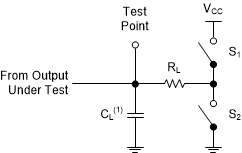
(1) CL includes probe
and test-fixture capacitance.
Figure 7-1 Load Circuit for 3-State
Outputs Figure 7-3 Voltage Waveforms, Pulse
Duration
Figure 7-3 Voltage Waveforms, Pulse
Duration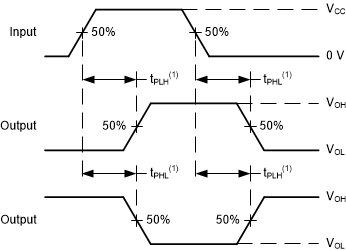
(1) The
greater between tPLH and tPHL is the same as
tpd.
Figure 7-5 Voltage Waveforms
Propagation Delays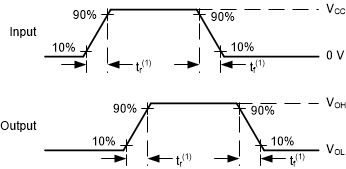
(1) The greater between
tr and tf is the same as tt.
Figure 7-7 Voltage Waveforms, Input
and Output Transition Times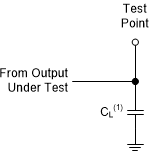
(1) CL includes probe
and test-fixture capacitance.
Figure 7-2 Load Circuit for Push-Pull
Outputs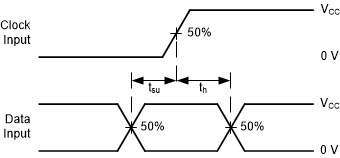 Figure 7-4 Voltage Waveforms, Setup
and Hold Times
Figure 7-4 Voltage Waveforms, Setup
and Hold Times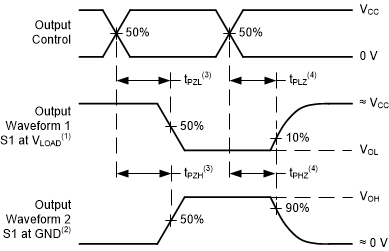 Figure 7-6 Voltage Waveforms
Propagation Delays
Figure 7-6 Voltage Waveforms
Propagation Delays